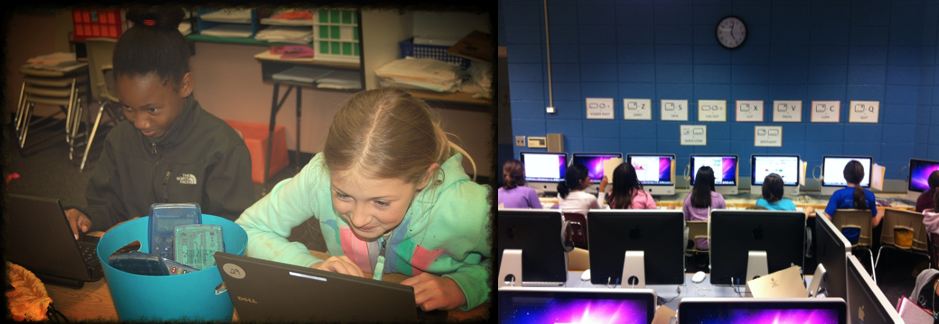
CSEE’s Marie desJardins recently collaborated with a group of Howard County parents and teachers to create HowGirlsCode, an educational program that “educates and inspires young girls to pursue computer related activities, courses, and careers.”
The program–originally called Computer Mania Club–is based out of Fulton Elementary School. Over the course of ten weeks, students meet for weekly two-hour sessions, working on projects such as Lego Mindstorm robots and 3D printing. Students also work with programming tools such as MIT’s Scratch program. The curriculum for the program is largely based off of materials from the Code.org website.
UMBC alumna Katie Egan and her husband Kent Malwitz have been instrumental in getting the club off the ground. Malwitz, who is the President and Chief Learning Officer for UMBC Training Centers, originally recruited Marie desJardins to participate in a brainstorming session for the club back in 2013. Professor desJardins now serves as a member of the Advisory Board for HowGirlsCode.
Bethany Meyer, Senior Web Developer at MGH, Inc., was a recent guest speaker for HowGirlsCode. During her presentation, Meyer explained how she got into coding, citing as an example a website that she created when she was 13 years old. Meyer went on to present more recent projects, such as OldBay75.com and OCOcean.com. “I think a lot of people have negative stereotypes in mind when they think of programmers,” Meyer says. “My goal was to break down some of those stereotypes by showing…[students] that the work can be really exciting and that it involves creativity and interacting with others. I hope that I inspired some of them to teach themselves to make websites. ”
A recent Baltimore Sun article notes that there has been a marked increase in student signups for HowGirlsCode since last year. More courses will be offered in the spring, due to increasing demand. At some point, the coding club could possibly expand to other schools. Currently, Egan is trying to turn HowGirlsCode into a 501(c)(3) tax-exempt, charitable organization. This would allow the club to have better access to resources such as facilities, grants and funding. Ideally, she hopes to turn the club into a nonprofit by September 2015.
The Johns Hopkins University’s Applied Physics Lab has a similar program, called Girls Who Code. The Hopkins APL program, which is intended for middle and high school students, is based on a national nonprofit of the same name.